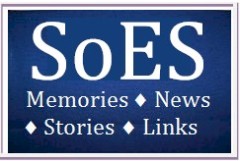When Ken Plummer invited me to contribute to this site my first thought was to describe my somewhat accidental journey into sociology, and to a lesser extent, into academia. Then I read Toby Miller’s account of his academic career in The Times Higher. Like. David Bouchier’s contribution to this site, it made me think that perhaps the unplanned and the accidental may actually be rather common. Maybe we should look for people who have a straightforward path into sociology! Indeed, the Sociology department at the Open University where I have worked since 2000 contains few people who actually have a first degree in sociology. There are many distinguished sociologists who come from ‘somewhere else’. But, like at least one of those people, my own tale contains a little twist to add to the mix.
When I arrived at Essex I was registered for a degree in biochemistry. This lasted less than a term and half as it finally dawned on me that science was not my future. I’m not sure who suggested I go and speak with Paul Thompson, but I think and hope it was the lovely, and sadly late, Pat Ready, who worked in the Students Union. Paul, then the head of department, was kind and asked why I would be interested in sociology (I had done it at A level). Once he felt I was genuine he was very helpful in easing the way for me to do so. Although I had not thought about leaving, that meeting became one of the main reasons I stayed at Essex rather than starting a Sociology degree elsewhere.
In retrospect, I realise the department was then in some kind of transition. Stan Cohen was still nominally a member of staff but was away in Israel and left before I got to take his deviance course. Peter Townsend taught his social structure course but also left in that time. In those days Sociological Analysis I and II (Can they still be going? When were they replaced?) were the cornerstone of the Sociology degree I can still recall the tutorial like system with Joan Busfield and three other students as we ploughed through Giddens’ (which spell checkers read as giddiness as Tony Woodiwiss memorably pointed out) Capitalism and Modern Social Theory. I can also recall being taught by Ian Craib, Dennis Marsden, Nicky Hart, and Michael Harloe. And in Ken’s deviance course I first came across Michel Foucault, probably the first sign of the break with the classical tradition we had been learning. Years before the RAE/REF and ‘research intensive’ universities, Essex sociology was an intellectually vibrant place full of academics doing fascinating and cutting edge research.
The deviance course was one of the reasons I opted to go on to LSE (rather than Kent where I was offered a studentship) and from there the tale changes from an accidental journey into one of Essex connections after Essex. At LSE I took a social theory course with Michael Mann. A few years later my second job, in drugs and criminological and social policy research, I worked with Nigel South (and I wish I could then have predicted where he would end up!). At that time, Nigel, another colleague and I were invited to provide some sessions for an MA Deviance, Stigma and Control course, my first reacquaintance with Essex and the initially odd experience of finding myself on the other side of the seminar room. And a decade or so later while I was on the BSA executive committee I found myself coming across Joan Busfield (who was the president of the BSA at the time).
The early expansion of criminology provided opportunities for jobs in academia and I taught that for most of the 1990s, mainly at Roehampton. In that decade I even tried to get a job at Essex. While I was waiting in the common room, Tony Woodwisss (then head of department) charmingly introduced himself by asking if I remembered him (rather than the other way round as it should have been)! Although that was not be, it was a pleasure to meet the department again, including the redoubtable Mary Girling who had been helpful to me and so many other students in our time there.
In recent years, research on policing and race and racism has led me to other Essex connections of people from subsequent decades such as Aisha Gill and Nasar Meer. Nowadays in the age of Facebook that is the main route to connections with my peer group and their varied careers – from youth work to law, academia, teaching and social work – and the many interesting other things they do outside of that. As the University approaches its 50th anniversary I know we all look back fondly on Essex as a key moment in our lives, the influence of which lives on.


